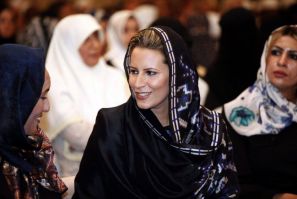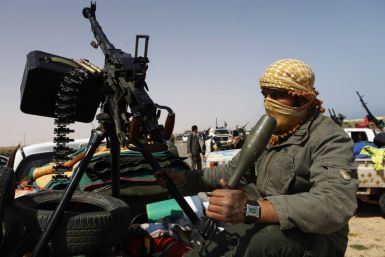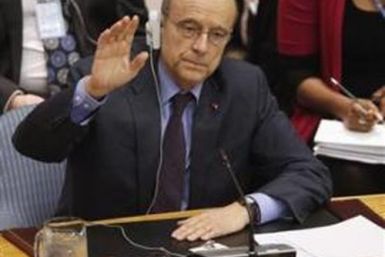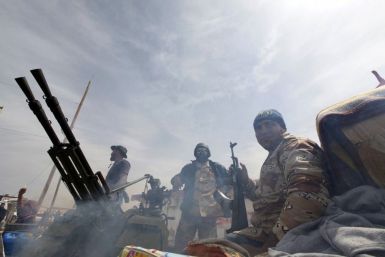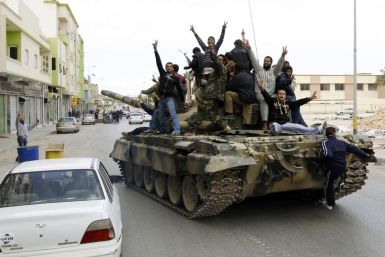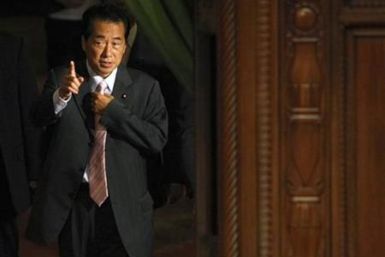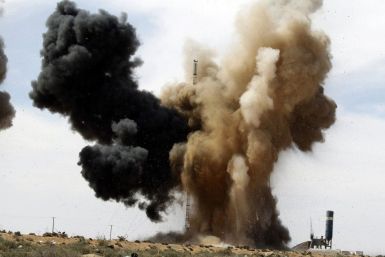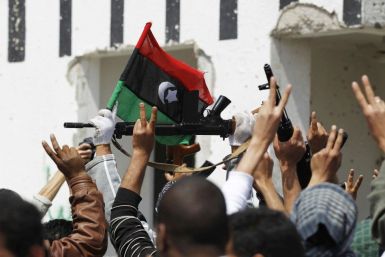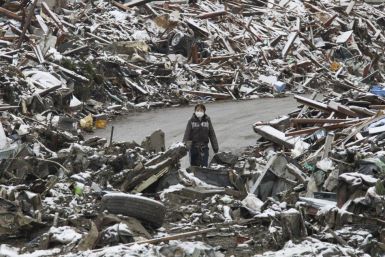Gaddafi did more than just showering bounties on Sirte and the middle region and won some lasting loyalty. He created state-of-the-art infrastructure in the region, explicitly making it the logistical nerve center of his military. He created air bases and sea ports besides making Sirte the base of the elite special response army units. Moreover, these elite crack troops were manned by members of his own tribe and factions allied with him.
U.S. stock index futures pointed to a flat open following three days of gains on Monday, though developments in Japan, Libya and the Middle East kept alive the potential for volatile trading.
Crude oil futures slipped on Monday as Libyan rebels disclosed plans of oil exports from the key oil towns captured by them over the weekend.
U.S. stock index futures rose on Monday, building on three sessions of gains, though developments in Japan and Libya remained in view, suggesting further volatility ahead.
The Libyan rebels have claimed they have captured Sirte, the stronghold of the Gaddafi tribe, according to reports on Monday. Sirte was once seen as the place Gaddafi could flee to, if and when he loses Tripoli. A rebel advance into Sirte could be the heaviest blow to the tottering regime of Gaddafi since the uprising started.
U.S. stock index futures were little changed on Monday as foreign headwinds remained in view following three days of U.S. equities gains, suggesting the recent period of volatility wasn't over.
Oil retreated on Monday with Brent slipping to around $115 after Libyan rebels regained control of key oil towns, and unrest over the weekend was limited to minor crude exporters Syria and Yemen.
Libyan rebels have formed a transitional government under the leadership of Mahmoud Jebril, and the new cabinet is slowly taking shape. The interim rebel government, which vies with the official regime for control of the country, has been boosted by the sovereign recognition by France and generous western support.
Following is a glimpse into some of the major Libyan opposition outfits that have been fighting Gaddafi overtly or covertly in the last three decades:
The Libyan rebels’ ragtag army, which has a few seasoned officers and defectors from Gaddafi’s army, is functioning notwithstanding the fact it is a bit unorganized without much training and a chain of compound. In a revelation of sorts, Libyan rebel commander Abdel-Hakim al-Hasidi told the Italian newspaper Il Sole 24 Ore recently that he had about 25 men from the Derna area in Iraq who had some links with the global terror outfit al Qaeda.
The U.S. labor market is finally improving, just when many of the other economic indicators are wavering.
Protests in Libya which began on February 15 in Libya have escalated into an international conflict as Libyan leader Muammar Gaddafi's efforts to stay in power have triggered efforts by NATO, Arab nations, and other partners to protect civilians.
Libyan moved west on Sunday, seizing back a pair of eastern coastal cities which include much of the nation's oil refining and exporting facilities on Sunday.
In a bizarre event in the ongoing crisis in Libya, a distraught and disturbed Libyan woman sought out western reporters in a Tripoli hotel to claim she had been gang-raped for two days by fifteen members of a paramilitary force loyal to Moammar Gaddafi.
Libyan rebel forces are reportedly advancing westward to the key city of Brega, after having taken control of oil port Ajdabiya, largely due to air strikes by western coalition forces.
Libyan rebels declared on Saturday that they had retaken the strategic crossroads town of Ajdabiya following heavy coalition airstrikes on Muammer Gaddafi's forces.
Risk assets have performed surprisingly well this week despite the lack of good news and ongoing concerns globally.
Oil prices dipped slightly in choppy, thin trade on Friday as traders weighed concerns about Middle East unrest and Libya's conflict as well as demand for oil in quake-hit Japan and debt-laden Europe.
Brent oil steadied near $116 in choppy, thin trade on Friday as traders gauged the threat to supply from Middle East unrest and Libya fighting as well as concerns over demand in quake-hit Japan and debt-laden Europe.
Graffiti art and placards reveal a divided world over the Libyan crisis, with some protestors backing Gaddafi, some opposing Gaddafi and some others opposing the U.S.-led action in particular.
Oil steadied on Friday, with Brent crude close to $116, but analysts saw the risk of higher prices as unrest bubbled across the Middle East and western powers kept up a military campaign in Libya.
[Investors] don't believe in the gold story anymore, declared Kevin Norrish of Barclays Capital on Wednesday, announcing the bank's latest commodity investment survey of institutional players. Not one single respondent chose Gold Bullion as the likely best performer in 2011, Norrish said.
The triple disaster in Japan and the ongoing turmoil in the Middle East and North Africa likely would have only a limited impact on the global economy - provided the twin shocks of higher oil prices and the supply chain disruptions from Japan do not get much worse, market research firm IHS said.






